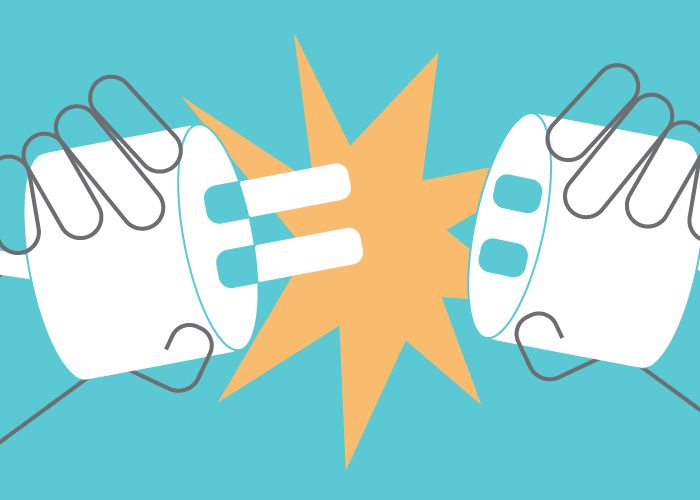

Navigating Negative Interactions With Pet Owners: 2 Steps to Coping Better
Stress management is now more crucial for veterinary professionals than ever. Without adequate coping skills, you may be unable to handle negative interactions and challenging situations, and over time, perhaps even daily duties. This may result in occupational burnout.
When facing stressful events, it's important to implement coping strategies to both reduce the negative impact on your mind, body, and spirit and also point to solutions you may not have seen before. They should put power and agency back into your hands, rather than keeping it in someone else's.
Here are two steps that do just that.
Use Cognitive Reframing
The frame through which you view any situation or another person determines your point of view. The problem is that sometimes your view is distorted, limited, or based on old information. It may also carry elements of previous trauma. In these situations, having a wider or different perspective is often helpful in seeing the situation more clearly. When the frame that you are looking through shifts, so too does the appropriate course of action.
Cognitive reframing means altering your mindset so you're able to see a stressful situation, person, or relationship in a new way by changing the meaning that you have attached to the events. Veterinary professionals can use cognitive reframing to alter their perception of perceived negative situations and thereby relieve significant stress and gain a greater sense of peace and control over their actions.
To use cognitive reframing in situations that you perceive as negative, consider the following:
- Is there another way to look at this situation?
- What are other reasons why this situation is the way it is?
- How old is the information I'm focused on, and what might I be missing?
- What biases might be informing my viewpoint?
- What stakeholder might offer a different perspective on the situation?
By answering these questions internally, you can begin to shift how you see a situation—and find new solutions. Reframing a negative situation can take something potentially traumatizing and morph it into something beneficial, such as an opportunity to extend compassion, overcome a challenge, or let go of a single bad moment in an otherwise great life.
You can use cognitive reframing at any time, especially if you feel down or negative about a situation or person. However, if you don't have any experience with this technique, or if you cannot escape your own point of view and are caught in negative thought loops, it may be helpful for you to enlist the help of a trained professional to learn how to use the skill of cognitive reframing.
Lead With Empowering Questions
A powerful way to engage in cognitive reframing about perceived negative interactions is to ask empowering questions. When people are often confronted by adversity and experiences they perceive as negative, they have been conditioned to ask disempowering questions, like:
- Why me?
- Why is this happening?
- What is wrong with me?
- Who is to blame?
These types of questions serve only to drag you further into negativity by creating excuses. They also make you think there is something inherently wrong with you or other people when there usually isn't. Questions like these also put power in the hands of others, thrusting you into a victim mentality with no agency.
Blame stories may have helped you survive to this point, but at some point, they just serve to keep people feeling angry, disempowered, victimized, and immobilized. The way to get out of this is to ask empowering questions, like:
- What good is here that I currently cannot see?
- What silver linings might there be?
- How does this experience make me stronger for the next?
Empowering questions are not only useful when you run up against an obstacle, problem, or challenge, but they can also be used to frame your entire day. When you get up in the morning, try asking yourself three empowering questions:
- How can I grow today?
- How can I give today?
- How can I celebrate today?
Then go about your day, looking for ways to answer those questions. These three questions, asked and answered consistently every day, can lead to a new way of looking at your waking hours. This, in turn, can lead to a new overall mindset that can change your life in positive and powerful ways.
New Perspective, New Success
Sometimes, all it takes to address a challenging situation is a new perspective and sense of agency. Together with other healthy coping skills—including a high level of self-care—these two methods can help transform problems into opportunities. And, when taught to team members, they can encourage and support your entire veterinary practice to provide better care to all.







